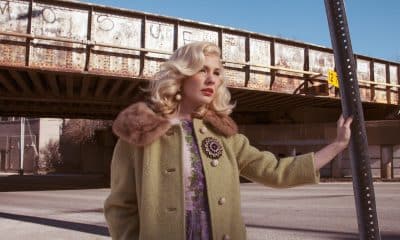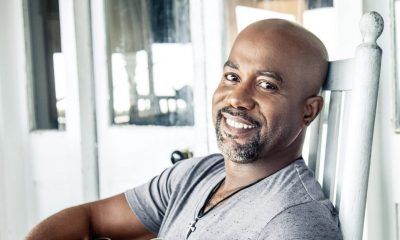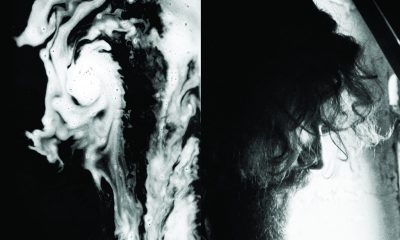Interviews
Introducing Carter’s Chord – An Interview
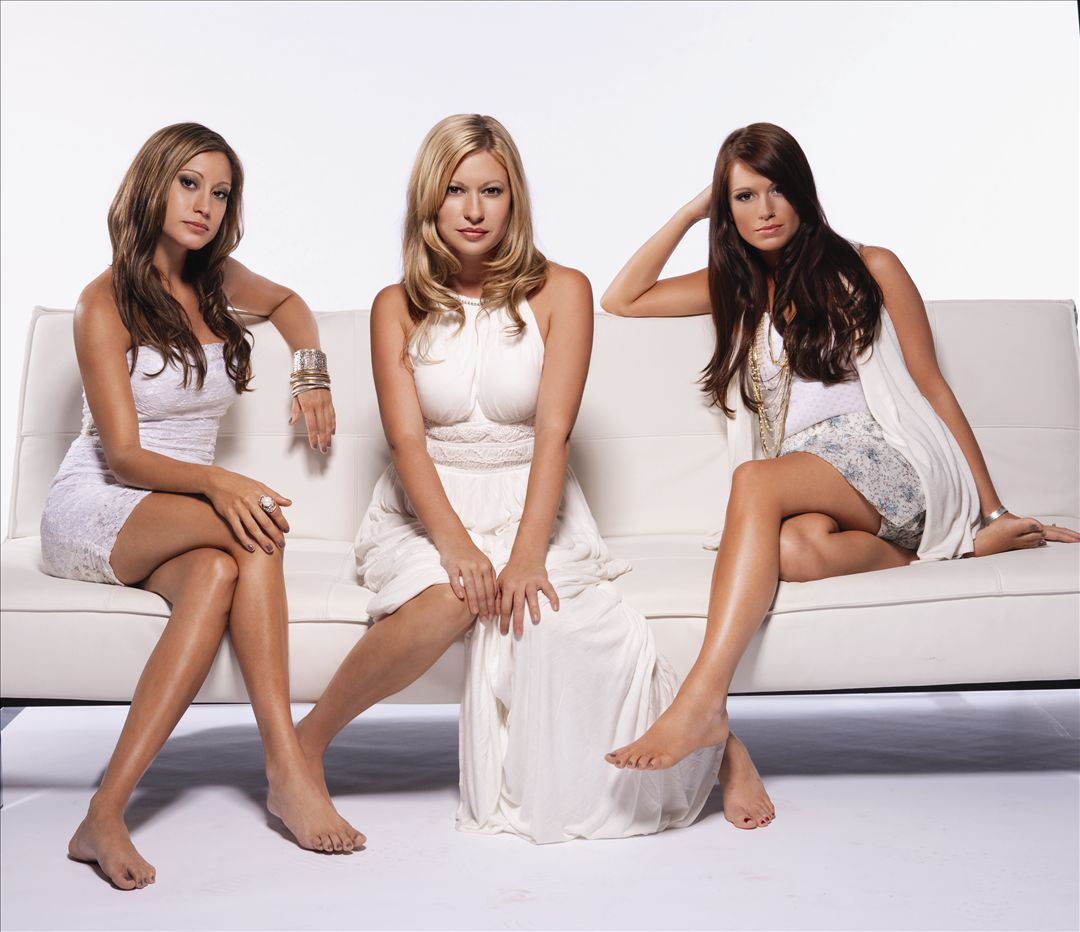
The sisters of Carter’s Chord–Becky, Emily, and Joanna Robertson–have a direct link to one of the most legendary families in country music history: their parents, Barney and Carter, were members of Waylon Jenning’s touring band, The Waylors. In this exclusive interview with The 9513, the Show Dog Records trio, on tour with label head Toby Keith this summer, talks about growing up around Waylon and Jessi Colter, and about how those experiences have helped shaped their music as they set off on their own country music journey.
Jim Malec: To start off, I’d like each of you to tell me something that is unique about yourself, when compared to your sisters.
Becky: I will definitely self-proclaim that I am the messiest of the three of us sisters. And I think they can totally attest to that, too. Joanna comes in a close second. I’m a very creative person and with creativity comes disorganization I’ve found.
Emily: Well, I’m the middle child, so I try and keep everybody together as much as possible. I’m probably the most organized of the three of us. But I’m still a little crazy. We’re all a little crazy–we’re all creative musicians. What Becky didn’t mention, as far as musical styles, she’s very, as far as her writing goes, she’s very traditional country. She’s loves Dolly Parton. We all love the “outlaw country,” but that’s something that really makes her stand out. As far as musically, for me, I think I really tap into the blues a lot. We all three love the blues, but I tend to write more on the bluesy side of things.
Joanna: I guess something, musically, that makes me different is that I’ve always kinda loved the singer-songwriter thing–I love Fiona Apple, who is one of my big influences. Also, I’m a little introverted sometimes. I tend to lock myself in my room. I’m not always good with big crowds.
JM: So, how is that going to be over the summer–you’ll be facing some pretty big crowds while you’re out on tour with Toby, I expect.
Joanna: That’s true. It has been a little stressful. I know Emily and I are kinda both…she’s the same way a little bit sometimes. But it’s been good. It’s been a good challenge for us.
Emily: Brings you out of your shell a little bit.
Joanna: Gets you out of your comfort zone.
JM: You did a showcase for Toby in February of 2006, and he made a commitment to sign you on the spot. But take me back to the time prior to that signing. Were you performing together around Nashville as a group, or were you doing the circuit individually?
Becky: You know, we’ve sung together our whole lives off and on since we’ve grown up together. We’ve always done things individually too, and we knew we wanted to do music, but we didn’t know if it would be in an individual thing someday, or if it would be something we did collectivity. It was about four years ago that we really sat down and decided we were going to try to make a go of it as a group. We came up with our name, Carter’s Chord–we named ourselves after our mom, whose name is Carter–and we just started booking writers nights around town. We made a demo CD which had 12 songs on it–our own album, not the typical four song demo CD–and we just started pitching that around to everyone we even remotely knew around town. And eventually it got int he hands of Toby’s agent, who passed it on to Toby. So we set up a showcase, and it’s true–we got up on stage and we played for about forty-five minutes. And we always joke that we kinda don’t remember that night because it was such a whirlwind, ’cause Toby’s sitting right there, like, six feet away, with his whole entourage, and it was a little bit intimidating.
But we got off stage and talked to Toby for, like, an hour, and he basically just said, “Well, I don’t need to hear anything else, so you girls work out your deal.” And we were like, “What does that mean? Are we supposed to call you or what?”
JM: Was Toby’s the first offer you were given, or had you been talking to other labels?
Becky: We had talked to some other labels. We had gone and played for people at different times. But when everything came down with Toby it just felt like a really good fit for us. There had been some other options there that we were taking a look at, but once everything with Show Dog came down…the group of people was great, it was such a big family atmosphere. And it was a smaller, more independent thing where we really felt like we’d have more creative freedom, which was really attractive for us. Once Toby gave us the offer, we didn’t think twice. That’s really where we wanted to be.
JM: Your parents played with Waylon, but stopped touring when Becky was born. That was 1981, so you didn’t exactly grow up in the midst of the outlaw movement. But you did grow up in a family which had a direct link to it, and you’ve talked a lot in your BIO and in other interviews about Waylon and Jessi being a part of your family. I’m curious how all of that has helped to shape your perspective on making music, and specifically, on making country music.
Joanna: My parents took a break when they had Becky for about ten years, but we always kept in contact with the Waylon family. They actually ended up doing a children’s record on Waylon–at the time my dad had started producing children’s music–and that’s kinda how everyone got reunited. My dad produced the album, and we moved out to Tennessee from California when we were pretty young. Waylon and Jesse lived out here, and it was just really really cool growing up with them in our lives as role models. Waylon was kinda our hero. Our parents shaped us a lot musically, but Waylon also played such a big role in our life musically, kinda like a father figure. Growing up with Shooter and Waylon and Jessi was just a really cool thing.
Emily: Because of the whole “outlaw” thing, we do kinda tend to lean to the left. We like edgy stuff. We love country music, but not the whole mainstream, poppy thing. We’re more roots-based.
JM: I’d like each of you to tell me your favorite Waylon Jennings song.
Joanna: “Ain’t Livin’ Long.” I love that song. I just think it’s so cool. And in the original recording you can hear our mom just wailing in the background, just singing her head off during the chorus.
Becky: It’s hard to pick one. I probably have two. One of them is “Amanda,” just because when I was ten I went to see a Highwaymen concert, and Waylon dedicated that song to me from the stage. And I thought it was the coolest thing ever. So that song always holds a special place in my heart. He also wrote a song towards the end of his life called “The Dream,” and he never recorded it really–he just demoed it at our parents’ house. My dad produced the demo on it. And it was the last song he ever recorded. After he passed away, that was the last song they played at the memorial service. It was just his guitar on stage with a spotlight and that recording of that song. That one is definitely my favorite.
Emily: There’s a song he started singing later in his life, called “Go Down Rocking,” and I just think that’s the coolest song.
JM: I’m going to read you a quote from your bio, and then ask you to respond. “The sound of Carter’s Chord is as country as a verdant hillside and as fresh and invigorating as a sip of well water.” I have no idea what that means. Please explain.
[Laughter] Emily: Yeah, that’s a little imagery right there. I hope it means something good? I think the sound of Carter’s Chord is really different. When people first see us they think, “Oh three sisters,” and they probably assume we’re going to sound a certain way. But once you see us in a live setting…we like to catch people by surprise. I think that’s what that quote is trying to say.
Joanna: It’s a breath of fresh air. That’s maybe what it’s trying to say. ‘Cause it is different, you know, like, we’re definitely country, we love country, we’re country all the way, but it is something a little different that were hoping to bring into this whole genre. It’s a little more rockin’, a little more bluesy.
JM: Right around the end of 2007, there was a ton of excitement at radio about Carter’s Chord. Radio was playing the sampler, everybody seemed totally psyched about y’all. But the first single, “Young Love,” didn’t exactly catch fire. What went wrong with that release?
Joanna: We definitely learned a lot. We came into this knowing a little more than I think some artists do just because of the way we grew up, but we have learned so much in the last year. But you know, we had an amazing radio tour. We literally were gone for four months on a bus. We went from market to market, and made lots and lots of friends. And I think all those relationships we started will continue to serve us well. It’s just really difficult being a new artist out there, especially with the American Idol mentality, and so much stuff going on with different reality shows and stuff. And radio is playing a lot less new music, so you’re not only competing with new artists, but you’re also competing with established artists. And you know, if they only play fourteen new songs a week or something, that’s very few slots that everyone is vying for. I really think “Young Love” was a great song, and we had high hopes for it. But it wasn’t really what we needed to be able to latch on and stake our claim. So we assessed that and decided to switch to a song that the three of us had written, “Different Breed,” just because it’s very reflective of who we are. And we feel it’s a song we can hopefully bust some doors down with eventually.
I still look at “Young Love” as being a success, just because we did have a good buzz going and people at least know who we are now.
JM: How do you feel about the fact that your album went digital first?
Joanna: We think it’s a great idea. Music is totally going in a completely different direction that it was ten years ago. And that direction is the internet. People from our generation, they don’t know what life is like without a screen name, without being able to go online and download music. So to put it out digitally first is really a cool experiment for us. I think since so many people are getting their music form the internet, it made sense. And our physical album will come out in September, so there will be a tangible thing. But you know, as a new artist, you kinda have to be strategic about when you release your music and how you release it. So I think this is kinda cool to open the door for us.
JM: But do you worry–and I have to ask this question–that if your album doesn’t meet a certain sales threshold in digital distribution that the physical product may never reach shelves?
Joanna: That is something you have to take into consideration. But you know, a lot of stores are taking away shelf space for CDs as well. So even if you release it in stores and it doesn’t sell in the first couple of weeks, they’ll pull you off the shelves. So I think we collectively would rather at least have it on the internet where people can buy it. And we’re just hoping it’ll generate some good momentum to where other people, who only buy CDs physically, will then buy that in September.
JM: What was the artistic approach to the record? I mean, the whole idea of blending “traditional roots” with “contemporary flair” shows up in just about every new artist’s BIO these days. Tell me, specifically, what you wanted to achieve musically with this record?
Joanna: We wanted it to be really well rounded. We had so many songs to choose from. There were some amazing songs that had been pitched to us, and then there were all these songs we’d written, and it’s actually a good problem to have when you have way too many good songs to have to wade through. When we finally decided what songs we wanted to do, we took a look at it and just really wanted to have something that would be well rounded. We’ve got those fun, upbeat songs that you can drive down the road with your windows down and sing to, and we’ve got some darker songs that tackle some tough issues. And I think more than anything we just wanted to capture the sound that we are. We throw the lead around a lot, so we wanted for all three of us to be able to showcase our talents at different places on the album.
Emily: We all three like the same stuff, and we have similar tastes, but we do have different tastes as well. And I think you can hear all three of our tastes in music when you hear the songs we wrote individually, and when you hear “Different Breed” that we wrote collectively.
Becky: If you listen one of the cuts, “When We Get There,” and then listen to the song that Joanna wrote, “Over You,” they’re like, completely different. You know, but at the same time, if you listen to the whole thing it’s a cohesive piece.
JM: One of those darker songs is “Summer Early 60s.” That song seems a lot heavier, in terms of lyrical tone, than the rest of the album. Your mom wrote that song, right? What’s the story behind her writing it and your recording it?
Joanna: Our mom wrote that a few years ago. It kinda started out as more of an art piece, like a poem. We were looking for a tenth song to put on the album, and we had really enjoyed what she had written, so we had suggested she put more of a chorus to it. At first it was really long.
She went upstairs this one day when we were talking about it, then came down a half an hour later and she’d written a chorus to tie it all together. And the three of us just freaked out. We fell in love with it. So we demoed it and sent it to Toby, and the next thing we knew, it was going on the album.
It’s a very personal song for our family, because it’s kind of autobiographical for our mom. It really tackles some issues there of domestic violence and hypocrisy in the church, and just some different things that she grew up with. And there’s also just a redeeming quality to it. It is pretty dark, but it’s probably our collective favorite on the album.
JM: OK. You’re out on tour, cramped on a bus with at least half a dozen other people. Are there times when the sibling rivalries come out? Are there times when you are just pulling at each other’s hair? And if so, how do you keep yourselves together in times like that, especially if you’re stuck on a highway in the middle of Nowheresville?
Emily: It’s crazy, it’s like torture. We have catfights all the time. No, I’m just kidding! Us being three girls, together, sisters, of course we fight. It would be kinda silly to say that we don’t. But the kinds of things we fight about are silly, stupid things like cloths, or someone’s running late, or someone’s wearing the boots I was gonna wear today. But when you’re out on the road and stress levels are high and you’re tired, sometimes those little things can seem like the biggest things in the world. But at the end of the day, we can’t stay mad at each other. Twenty minutes later we’re like, “I’m sorry, I’m just really stressed today, I didn’t mean it.”
So we’re really good at giving each other our space when we know that one of us wants to be alone. So that helps us. And you know, our parents…the only model we’ve ever had growing up is our parents doing music together as a family, and I think that’s been a really good model for us because that’s all we’ve ever known–is to do this together, as a family.
JM: Joanna, any chance we’ll see you doing the Soulja Boy on the Toby tour this summer?
[Laughter] Joanna: I don’t know, maybe if you’re lucky!
JM: What is country music?
Becky: I think country music, when it all boils down to everything, is the music of the people. I mean, it’s real stories about real life. And it’s presented in lots of different ways. It can be lots of different sounds. But at the heart of it all, it’s the music of America and of people with real stories. It’s not a bunch of fluff. It gets to the heart of the music.
Emily: It’s a familiar strand that runs through everybody. It’s not Hollywood, it’s not fluff, it’s not something it isn’t. It’s real stories, about real people. It’s real music that everybody can relate to.
Joanna: If you look at country fans, they really are the most loyal fans. And I think that the music that resonates with you the most is the music you can relate to, and country music is just music that everybody can relate to. It’s got soul stories.
- Lists13 years ago
Top 10 Country Music Albums of 2010
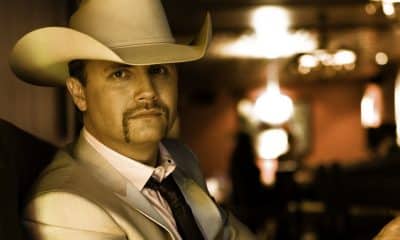
 Interviews5 years ago
Interviews5 years agoJohn Rich – The Interview
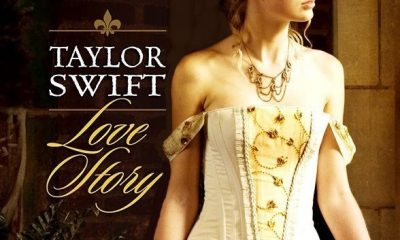
 Song Reviews16 years ago
Song Reviews16 years agoTaylor Swift – “Love Story”

 Interviews5 years ago
Interviews5 years agoHoneyhoney on Hiatus: Revisit our 2008 Interview with Suzanne Santo
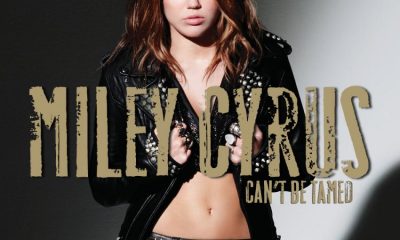
 Album Reviews14 years ago
Album Reviews14 years agoAlbum Review: Miley Cyrus – Can’t Be Tamed
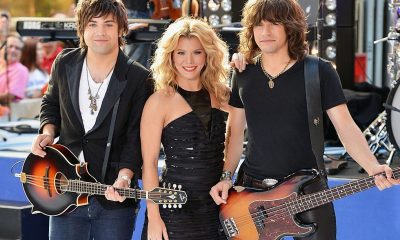
 Song Reviews6 years ago
Song Reviews6 years agoThe Band Perry – “Hip To My Heart”
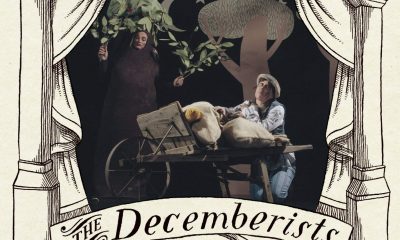
 Columns5 years ago
Columns5 years agoThe Link Between Folk Music’s Past and Present
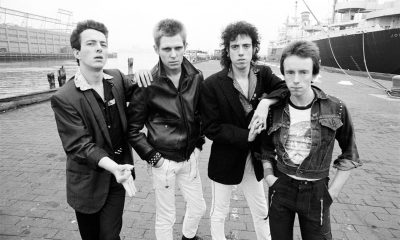
 Columns5 years ago
Columns5 years agoIs Marketing Killing Rock and Roll?




